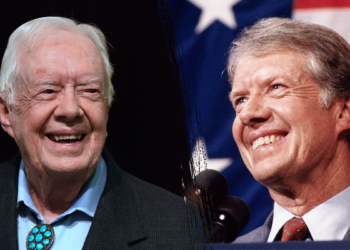New York Knicks and Rangers fans are well-acquainted with heartbreak and frustration, with their teams decades removed from their most recent championships. But a new kind of headache began on New Year’s Day, one having nothing to do with holiday champagne.
The teams’ regional sports outlet, MSG Networks, went dark on Altice USA’s Optimum pay-TV systems at 12:01 a.m. on Wednesday, leaving 2.1 million subscribers without access to game broadcasts. Optimum TV operates in the Tri-State area around New York City, spanning New York, New Jersey and Connecticut.
While negotiations are continuing, there is little sign of a quick resolution. Carriage battles are a routine feature of the traditional media landscape, but this one could have implications for the already-troubled RSN business, one of the dominant media families in the No. 1 media market and perhaps even the NBA itself.
The standoff comes as the Knicks are off to their best start in years, winners of nine straight games and projected as one of the NBA’s handful of top contenders to win a title. The Rangers are not faring nearly as well, but have been competitive in recent years and routinely sell out Madison Square Garden, as do the Knicks.
Cord-cutting, however, has depleted the once-fat margins of RSNs and made once-typical increases in carriage fees much less of a sure thing. Mindful of this operating environment, MSG Networks agreed to accept a lower overall financial package, according to a person familiar with the talks, but Optimum refused. An MSG press release about the carriage situation noted that Optimum also recently boosted the price of the TV bundle where MSG Networks channels are found to $140 a month from $95.
In a statement provided to Deadline, MSG Networks called its programming “one of the most viewed television offerings in the New York metro area. This is a pure and simple price gouge from Altice.”
Optimum, meanwhile, said in its own statement that it has “a clear mission: to provide the programming that our customers want and give it to them at an affordable price. The problem: MSG Networks demanded that customers who don’t watch their content – who are the majority – have to pay for it anyway AND demanded that all customers pay an exorbitant amount in fees to carry its content.”
Bankruptcy looms as a potential outcome for MSG Networks parent Sphere Entertainment if there is not a peace accord soon, Wall Street analysts are speculating. Such a development could redraw the map of the Dolan family and potentially even the NBA. While fans at least can now stream local games via joint streaming venture Gotham Sports, which also features the YES Network, home of the Yankees. They will also get a diet of national games on ESPN and TNT and all playoff rounds starting in April will be nationally televised. Still, the timing is harsh for fans heading into wintertime after a season of torment for fans of the two local NFL teams, the Jets and Giants.
MSG Networks is one of several entities controlled by the Dolan family. The billionaire media dynasty, now primarily overseen by James Dolan, owns the Knicks, the Rangers and their home arena, Madison Square Garden. Other companies in its portfolio also run venues like the Sphere in Las Vegas and New York’s Beacon Theatre and Radio City Music Hall, as well as cable and streaming programmer AMC Networks. Ironically, patriarch Charles Dolan, who died last Saturday at age 98, had helped pioneer the concept of regional sports television. He created SportsChannel, TV home to the Knicks, Rangers and other teams during the 1970s and 1980s as Cablevision grew into a distribution powerhouse. The company, which launched the Optimum brand, was sold to Altice in 2016 for $17.7 billion.
In a note to clients, Guggenheim analyst Curry Baker estimated that MSG currently gets about one-third of its total distribution revenue from Altice, which in fiscal 2025 is projected to total $127 million. That means the blackout is costing the programmer about $350,000 a day and materially all of its adjusted operating income, or AOI, the analyst added.
Altice also stands to lose money as subscribers cancel their TV service, but the company has joined pay-TV peers like Charter, Cox and others in emphasizing the better economics of broadband and wireless. Other pay-TV operators, including rising internet-based bundlers like YouTube TV and Hulu + Live TV, have opted to drop RSNs given that their tune-in is by definition local.
“Failure to renew Altice would wipe out all MSGN’s AOI for FY25 and mean bankruptcy for the RSN business,” Baker wrote. “Altice management has publicly taken a hard line on RSN carriage, so we
see a real chance this remains a permanent carriage drop.”
Bankruptcy, as the messy case of Diamond Sports Group has vividly demonstrated, brings a host of uncertainties. Even so, it could end up “clarifying the RSN situation,” in Baker’s view, and force Sphere Entertainment to walk away from its RSN obligations, which were added to its balance sheet when MSG Networks was combined with Sphere in 2023. Such a result “would be a positive/clean outcome for Sphere shareholders going forward.”
Shares of Sphere climbed 3% on Thursday to close at $41.51, their highest level in a month.
Brandon Ross of Lightshed, a research and investment firm, also sees some upside to a bankruptcy. He estimates a filing would relieve Sphere of $829 million in debt – a sizable sum given its market capitalization of $1.5 billion.
In a blog post, Ross suggested the benefits could also extend to the NBA, which has its eye on a prize even bigger than its recent three-fold increase in media rights fees. “The NBA has looked at centralizing local OTT rights,” he wrote. “The biggest impediment to that is the deals from some large market teams, especially the Knicks and Lakers. Perhaps a MSG Networks bankruptcy could catalyze those ambitions.






